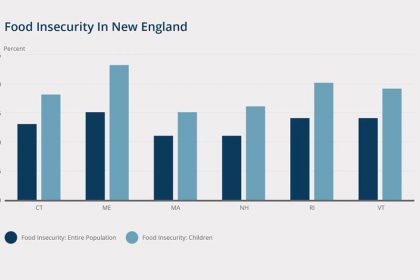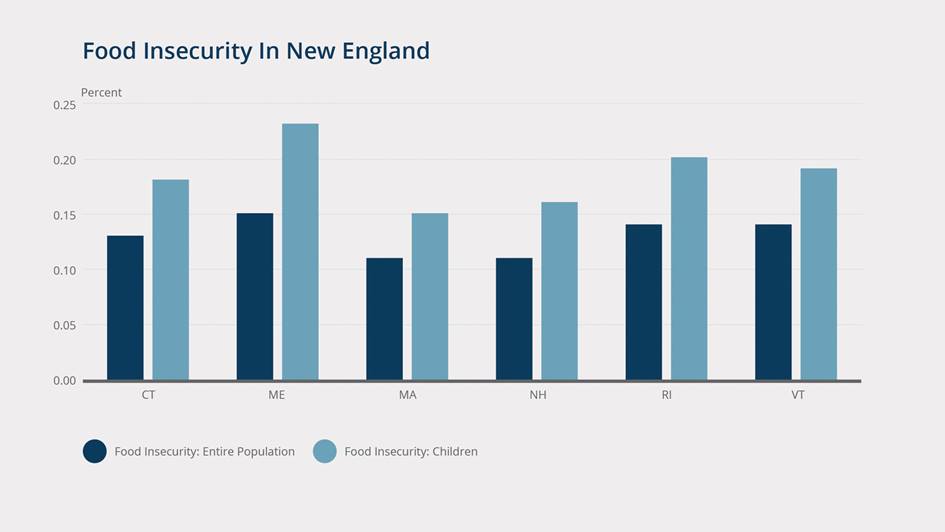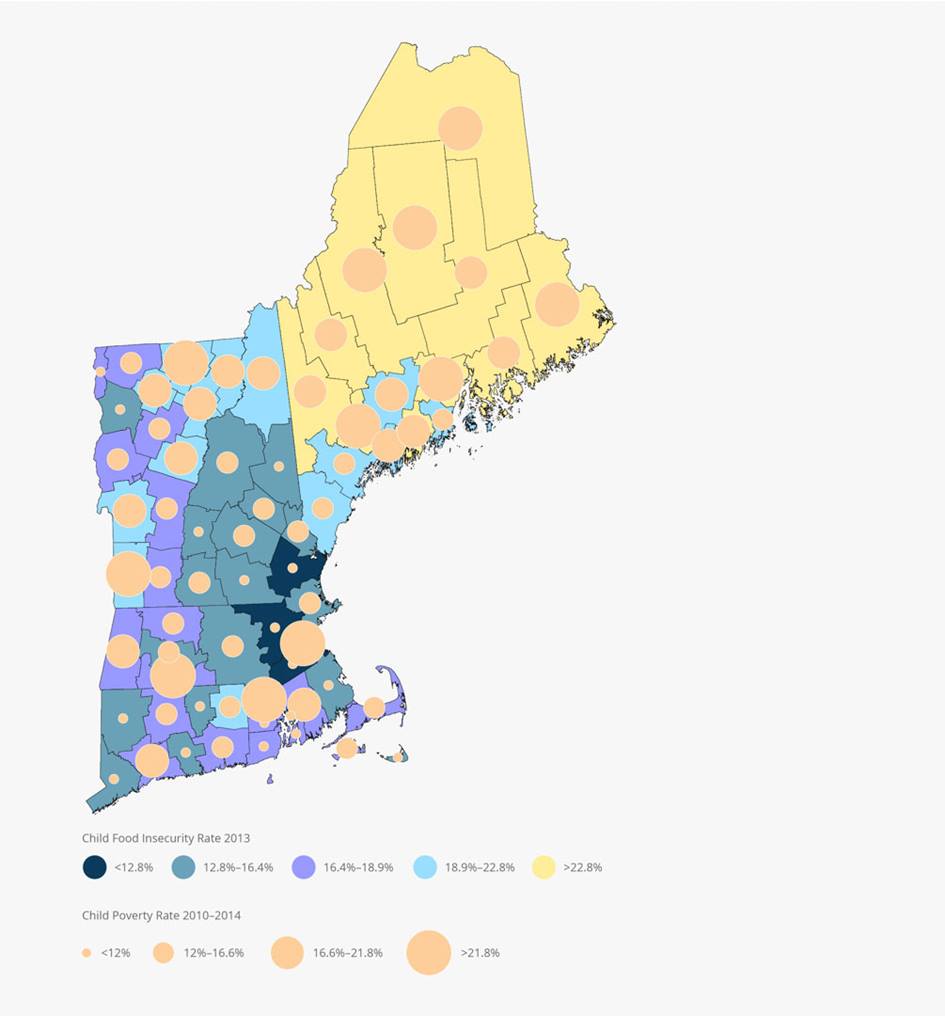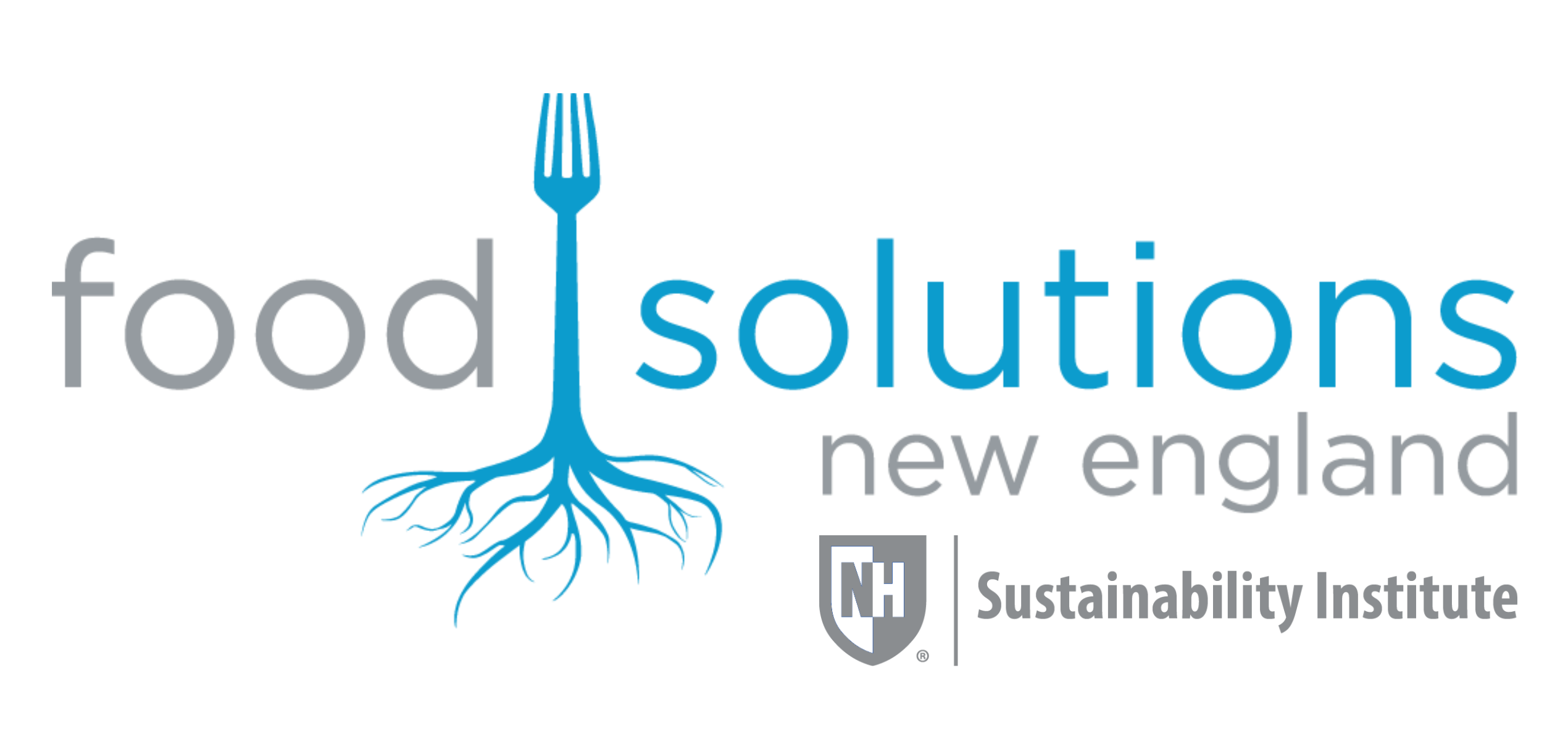
This articles was originally published by Amy Higgins, Federal Reserve Bank of Boston’s Communities & Banking.
Hunger affects over 48 million Americans, and more than half of the counties with the highest rates of food insecurity are rural. Food insecurity is defined as limited or uncertain food availability or ability to obtain nutritionally adequate and safe foods.1
Data provided by Feeding America reveal that in New England, food insecurity rates are higher for children (those under 18) than adults. In 2014, 1,792,980 individuals in New England were food insecure. Of those, 518,220 were children. Maine has the highest child food insecurity rate (23 percent), while Massachusetts has the lowest (15 percent).
The map shows the child poverty rate and child food insecurity rate by county in New England. Norfolk and Middlesex county, Massachusetts, and Rockingham county, New Hampshire, have the lowest child food insecurity rate, falling between 11 to 12 percent. In general, counties that have high rates of child food insecurity also have high rates of child poverty. Piscataquis county, Maine, has the highest child food insecurity rate (28 percent) as well as the highest child poverty rate (30 percent).
Even more concerning than the food insecurity rate is the percentage of food-insecure children who do not qualify for federal nutrition assistance. These children live in households with income above 185 percent of the 2014 federal poverty guideline.2 York and Cumberland County in Maine have child food insecurity rates of 21 percent and 20 percent respectively, but 45 percent and 42 percent (respectively) of these children are unlikely to qualify for federal nutrition assistance due to income ineligibility.

Rachel Bissett/Federal Reserve Bank of Boston

Rachel Bissett/Federal Reserve Bank of Boston
The views expressed are not necessarily those of the Federal Reserve Bank of Boston or the Federal Reserve System. Information about organizations and upcoming events is strictly informational and not an endorsement.




